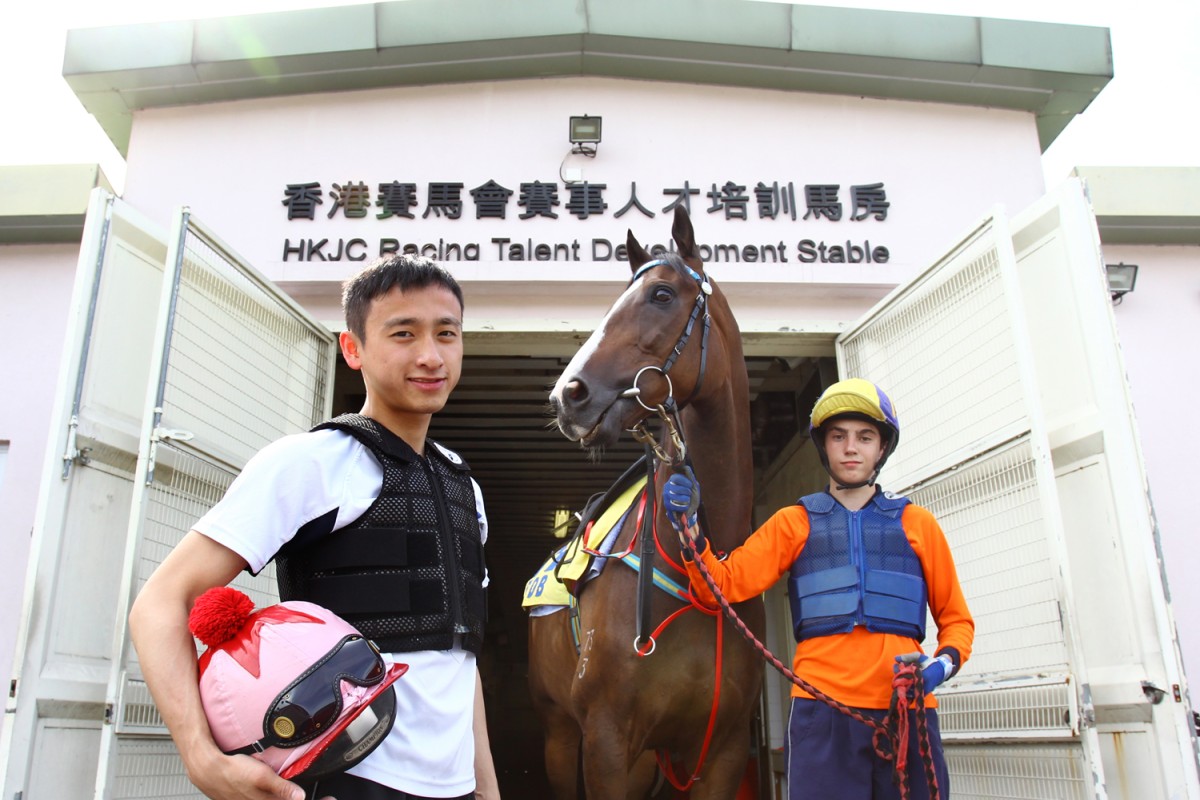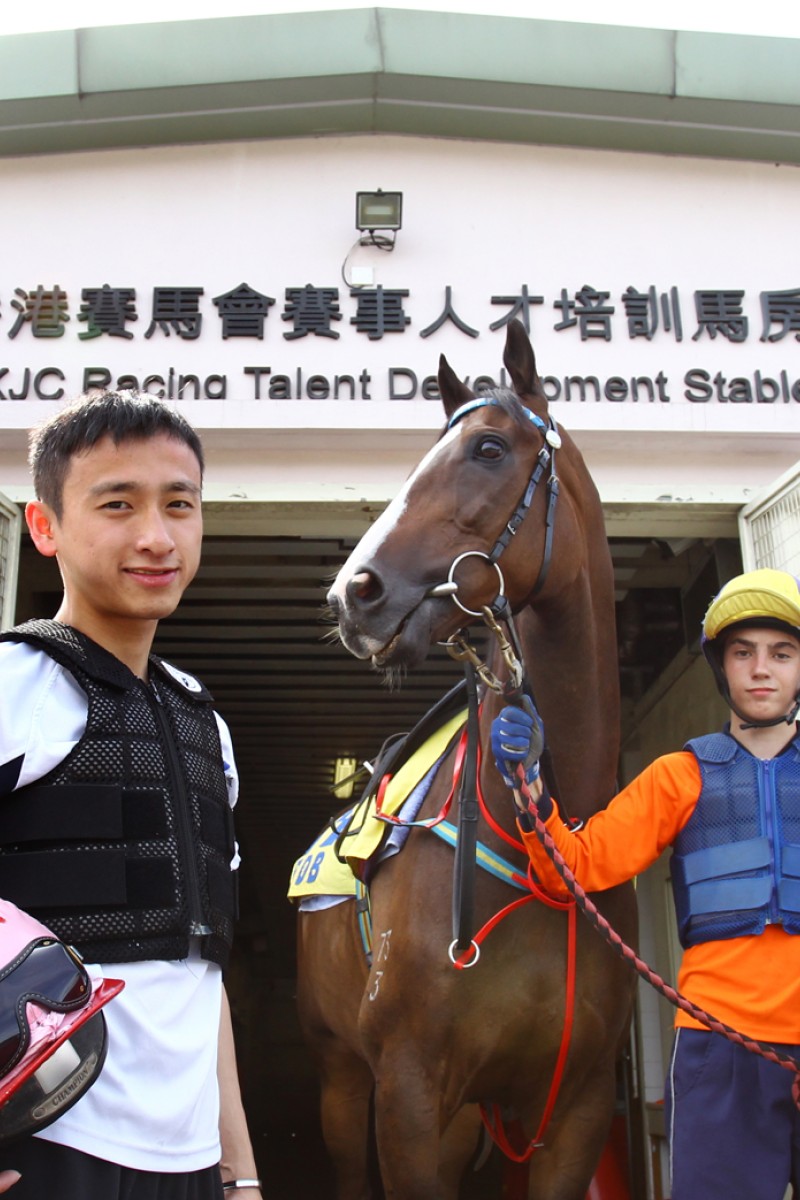 Dicky Liu (left) and Mike Doleuze are on the right track to success
Dicky Liu (left) and Mike Doleuze are on the right track to successIf you weigh less than 50kg and think riding race horses sounds like a fun job, you should consider becoming a jockey.
"Being in a horse race is just an amazing feeling," says 16-year-old Mike Doleuze, who is a racing trainee at Hong Kong Jockey Club's (HKJC) Apprentice Jockeys' School. "The speed and adrenaline rush is amazing."
Mike enjoys the bond formed with the 500kg animal. "It's also about teamwork because the race is about you and the horse."
Although the horse does 90 per cent of the work, the jockey's contribution can make the difference between winning and losing a race, says Mike. "The trainer prepares the horse specifically for each race, so when you help win it, you feel really proud," he says. "In the end, you feel like the horse is your friend."
But being a professional jockey is not just for animal lovers and adrenaline junkies; it's also financially rewarding. Last season's top jockey won more than HK$100 million in prize money from races. Typically, jockeys receive around 10 per cent of these winnings.
Mike's father, Olivier Doleuze, is a leading professional jockey in Hong Kong. Last season, he won HK$50 million in prize money; he received HK$5 million.
"I'm good at sports but [being a jockey] wasn't my dream," says Dicky Lui, an apprentice jockey at HKJC. "I was a judoka before, but there aren't many good jobs for judo athletes in Hong Kong. I was offered a chance to join [HKJC's racing trainee] programme, and horse racing is very popular in Hong Kong, so I took it."
Fortunately for Lui, his judo skills have come in handy. "I learned to have good balance from judo, and balance is important in horse racing, too," says Lui.
"Riding is all about co-ordinating with the horse," says Samson Lau, who joined HKJC as a senior riding instructor and is now the training stables manager. "If you can't balance and are constantly moving while riding, the horse's movement will be affected, too."
Jockeys also have to be light, and meet the weight requirements set by officials for the race.
"The ideal weight for racing trainees is less than 105 pounds [around 48kg]. In Hong Kong, the weight limit for jockeys is 113 pounds," says Lau.
Lui, who won the Champion Apprentice Jockey title in both 2012/13 and 2013/14, is 1.57 metres tall but rides at 107 pounds, which means he is slightly heavier than normal for the profession. To achieve this ideal weight, jockeys spend three hours a night, six nights a week, at the gym doing aerobic exercise.
"We're tired, but we encourage each other to get through the three hours of fitness training every night," says Lui. "Everyone helps each other here [at the Apprentice Jockeys' School] and respects each other," says Mike. "It's because we all have the same goals. Although we compete against each other, team spirit makes us stronger."
Besides the training, the other difficult aspect of a racing trainee or apprentice trainee's life is the schedule. They wake up very early in the morning to ride when it can be really cold, especially in winter. "I wake up at 3.30am and go to the stable to muck out," says Mike.
Also, trainees must go to sleep early, so they cannot enjoy Hong Kong's night life. Lui, 24, finds this difficult. "I have had to sacrifice my free time outside of the apprenticeship," he says. "We're in bed by 10pm because we have to wake up early, so we cannot go out and socialise."
Becoming a jockey isn't the only career path available to those who join the racing trainee programme. The club also offers other career choices including trainer, racing management trainee and assistant, so there are plenty of options for anyone who fails to meet the fitness or weight requirements, but loves horses.
HKJC's racing trainee recruitment, which ends on Sunday, is open to those aged 15 or above who have completed Form Three education. For more information, go to www.hkjc.com
